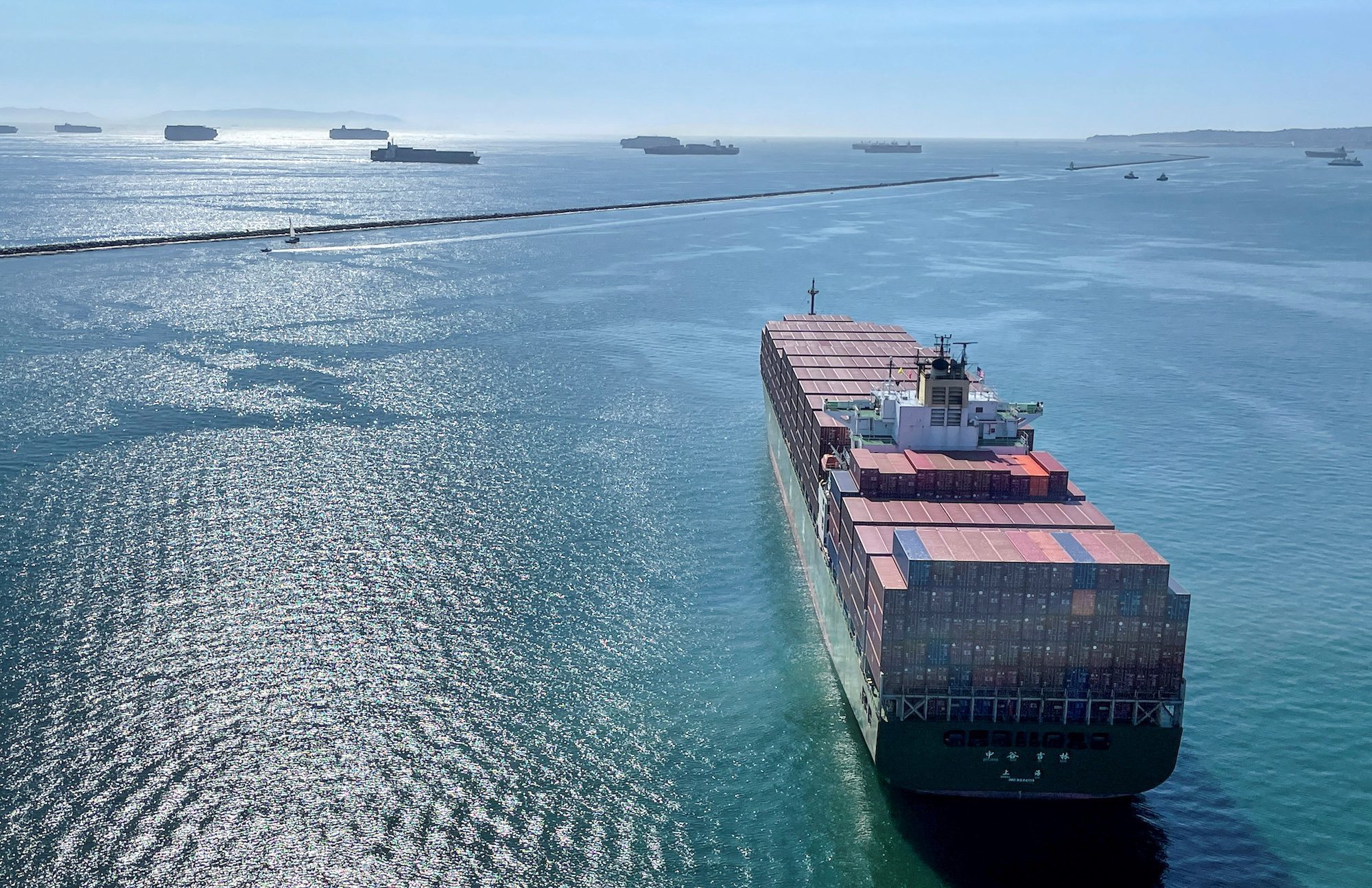Spot Rate Slump Threatens to Sink Carrier Profits
Container spot freight rates on the main east-west deepsea trades witnessed more declines this week, as a combination of weak demand and excess supply of slot capacity prevailed.

The U.S. Senate Committee on Commerce, Science, and Transportation on Tuesday approved the Ocean Shipping Reform Act, advancing what could become the first major regulatory reform in ocean shipping in over two decades.
The bill will now head to the Senate floor for a vote.
“We also know here, in the Committee, that these ocean shipping companies are making record profits.,” said Senator Maria Cantwell (D-WA), Chair of the Commerce Committee. “They have made $150 billion dollars in profits in 2021, and ocean import volume for the first quarter of this year is forecast to increase by more than 30 percent. Our farmers don’t want special treatment. They just don’t want to be exploited for the sake of record profits.”
The Ocean Shipping Reform Act was introduced in the Senate in February by Senator Amy Klobuchar (D-MN) and is co-led by Senator John Thune (R-SD), as well as co-sponsored by a bipartisan group of 27 senators.
Senator Klobuchar says the bill will “level the playing field for American exporters by making it harder for ocean carriers to unreasonably refuse goods ready to export at ports.”
The bill provides the Federal Maritime Commission (FMC), the indepedent federal agency overseeing international ocean shipping on behalf of U.S. consumers and business, with greater authority and rulemaking ability over certain practices by international ocean shipping companies, such as detention and demurrage fees and services offered to American exporters. Similar legislation passed the U.S. House of Representatives with overwhelming bipartisan support in December.
Specifically, the Ocean Shipping Reform Act will:
“Congestion at ports and increased shipping costs pose unique challenges for U.S. exporters, who have seen the price of shipping containers increase four-fold in just two years, raising costs for consumers and hurting our businesses. Meanwhile, ocean carriers that are mostly foreign-owned have reported record profits,” said Senator Klobuchar. “This legislation will help level the playing field for American exporters so they can get their goods to market in a timely manner for a fair price. Now that this bill has passed the Commerce Committee, it is one step closer to being signed into law.”
Unsurpringly, the legislation is opposed by international ocean carriers.
The World Shipping Council, a trade group representing international liner shipping companies, issued a statement on the Commerce Committee’s markup saying the bill doesn’t address the root causes of landside congestion that have contributed to shipping logjams at U.S. ports, but at least credited the Senate’s version for providing regulators with enough authority “to get the final rules right.”
“Instead of passing legislation that would do nothing to address the nation’s supply chain congestion, Congress should seek real solutions that take a comprehensive, forward-looking view. That means continued investment in port infrastructure and promoting communication, innovation, and collaboration across sectors to further strengthen the intermodal transportation system that has supported the U.S. economy throughout the pandemic,” the World Shipping Council said.
This all come as the Biden Administration is cracking down on international ocean carriers and shipping alliances who stand accussed stoking inflation.
“When corporations don’t have to compete, their profits go up, your prices go up, and small businesses and family farmers and ranchers go under,” said President Biden during last month’s State of the Union address. “We see it happening with ocean carriers moving goods in and out of America. During the pandemic, these foreign-owned companies raised prices by as much as 1,000% and made record profits. Tonight, I’m announcing a crackdown on these companies overcharging American businesses and consumers.”

Sign up for gCaptain’s newsletter and never miss an update

Subscribe to gCaptain Daily and stay informed with the latest global maritime and offshore news


Stay informed with the latest maritime and offshore news, delivered daily straight to your inbox
Essential news coupled with the finest maritime content sourced from across the globe.
Sign Up